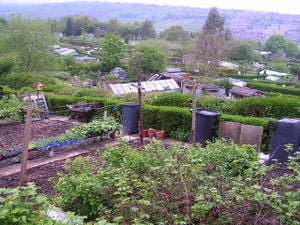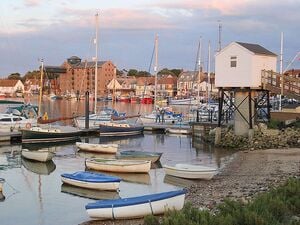
- A big win for nature as heathlands bounce back, date not found...[1]
Oct 2021[edit | edit source]
The UK is one of the world's most nature-depleted countries - in the bottom 10% globally and last among the G7 group of nations, Oct 10[2]
Jul 2021[edit | edit source]
'High-impact' wildlife projects aim to restore habitats across England, Jul 8[3]
Beavers set to be released in London as part of urban rewilding, Jul 2...[4]
May 2021[edit | edit source]
End mowing of road verges to create huge wildlife habitat, says UK study, May 26[5]
One quarter of English councils have plans to rewild. Does yours? May 19...[6]
Finally, a proper battle for the future of our countryside, Joss Garman, May 6[7]
A Nation of Nature Lovers? May 4[8]
Apr 2021[edit | edit source]
Sounding the alarm on disappearing natural beauty. CPRE's latest research shows that England's Areas of Outstanding Natural Beauty are under increasing threat from badly-planned housing. Apr 22...[9]
Almost £8 million raised in 6 months for The Wildlife Trusts' nature recovery plans, ten new projects unveiled which are contributing to the drive to help nature fight back. Apr 7[10]
Feb 2021[edit | edit source]
Nature is a blind spot in economics that we ignore at our peril, says Dasgupta Review, Feb 2[11]
- The Review argues that nature is our most precious asset and that significant declines in biodiversity are undermining the productivity, resilience and adaptability of nature. This in turn has put our economies, livelihoods and well-being at risk.
- The Review makes clear that urgent and transformative action taken now would be significantly less costly than delay and will require change on three broad fronts:
- Humanity must ensure its demands on nature do not exceed its sustainable supply and must increase the global supply of natural assets relative to their current level. For example, expanding and improving management of Protected Areas; increasing investment in Nature-based Solutions; and deploying policies that discourage damaging forms of consumption and production.
- We should adopt different metrics for economic success and move towards an inclusive measure of wealth that accounts for the benefits from investing in natural assets and helps to make clear the trade-offs between investments in different assets. Introducing natural capital into national accounting systems is a critical step.
- We must transform our institutions and systems – particularly finance and education – to enable these changes and sustain them for future generations. For example, by increasing public and private financial flows that enhance our natural assets and decrease those that degrade them; and by empowering citizens to make informed choices and demand change, including by firmly establishing the natural world in education policy.
'Reservoirs of life': how hedgerows can help the UK reach net zero in 2050, Feb 2[12]
Jan 2021[edit | edit source]

Farmers lead plan to reintroduce white-tailed eagle to Norfolk, Jan 22[13]
See also[edit | edit source]
- Biodiversity UK news (latest), 2023, 2022, 2021, 2015-2020
- Biodiversity news
- Biodiversity UK
local information can be found, or shared, via our many UK location pages
References